From hunting, herding, and protecting to simply being “man’s best friend,” there isn’t much dogs can’t do! So, it’s no surprise these furry friends also make great support animals. With their trainable and loving nature, dogs can become therapeutic companions. Since each breed has distinct personality traits, some are considered to be the best therapy dogs, and we have listed them below.
Since the pandemic, many families are turning to therapy to improve their mental and emotional health. According to a survey of 2,000 Americans, both parents and kids are still feeling the stress. The survey reveals that 68 percent have seen their children face significant mental and emotional challenges. Stressors such as heading back to in-person school and work have led 63 percent of parents to seek a therapist for themselves, their children, or the entire family.
Though dogs are not therapists, they can most certainly help alleviate stress that may increase mental health problems. And according to another study, trained therapy dogs can improve kids’ moods and even help them engage more with educational lessons. Sounds like a win-win!
But which breed is right for you and your family? StudyFinds searched several expert sites and compiled a list of the best therapy dogs. Since each breed is better recommended for certain tasks and locations, read on to find out which dog may be the top pick for you! Don’t see your favorite breed on this list? Let us know in the comments.
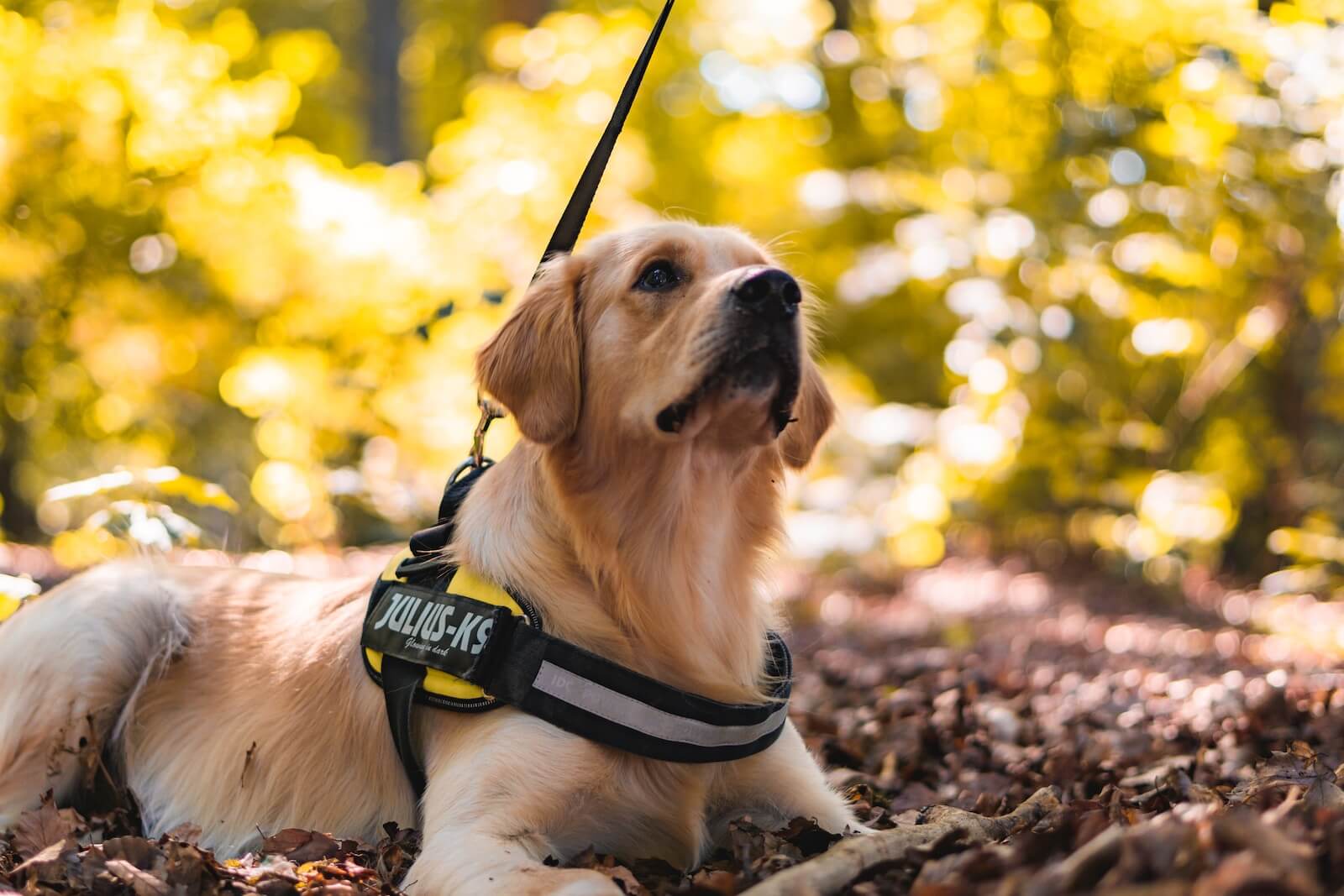
The List: Best Therapy Dogs, According to Experts
1. Labrador Retriever
As one of the most popular breeds, labs are loved by many! They are most well-known for their sweet spirit and trainable nature which are necessary traits for great therapy companions. “Labrador Retrievers are a breed favorite for many reasons,” says Pet Keen. “They’re friendly, happy dogs and work well in both canine jobs and as family pets. Labradors like to spend time with people and show affection easily, but they’re also easy to train to be calm and relaxed when needed—perfect for a therapy environment.”
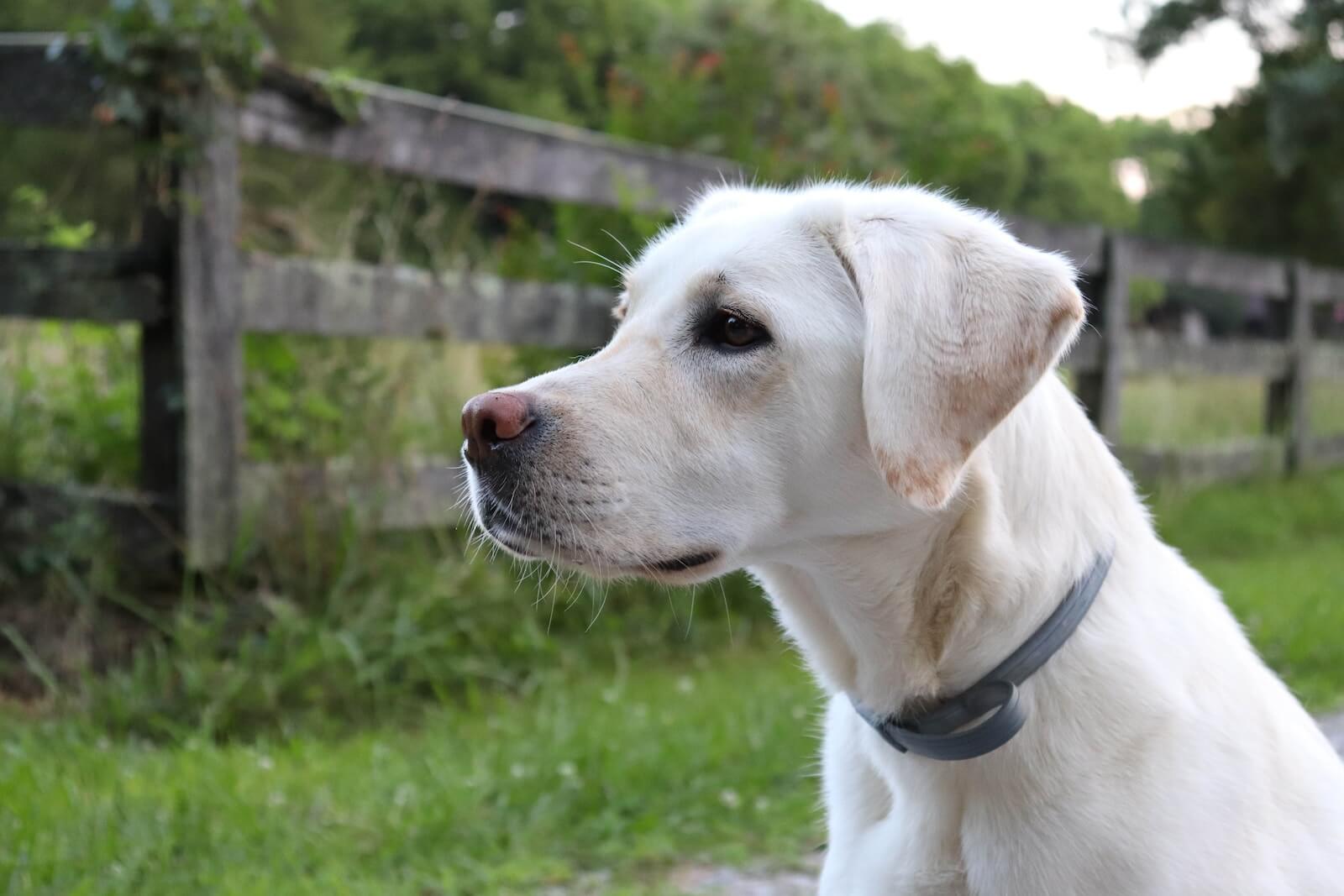
Fetch! Pet Care writes, “Labs absolutely love to please you, so training them is usually a breeze. They tend to be very perceptive as well as affectionate, so they are great for people suffering from depression or anxiety disorders and can be used with kids and adults alike.”
“The set of personality traits that a Labrador retriever can offer make them an ideal dog breed used to provide support and comfort to those engaging in pet therapy, particularly in those with a disability. It’s why they topped this list too! Labs are obedient, socialized, and friendly – the perfect mix for a furry friend companion,” adds Focus Care.
2. Golden Retriever
Similar to the Labrador, Golden Retrievers have the same sweet spirit and trainability. Their relaxed and gentle nature also makes them great support animals. Purina states, “These are big pooches with big hearts and a huge love for people, so with the right training they can make one of the best therapy dogs out there, especially when physical support is needed.”
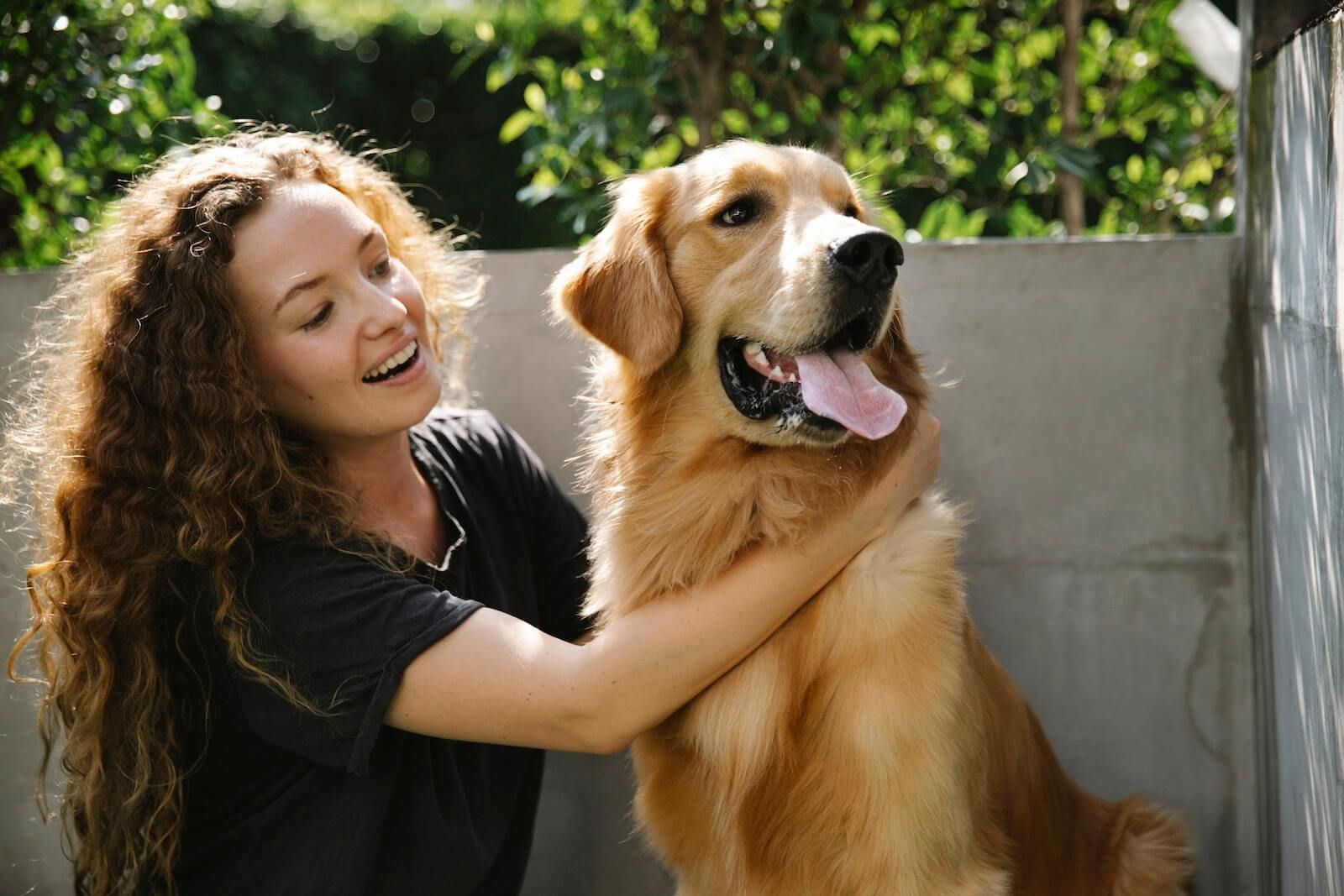
“The AKC describes this breed as ‘affectionate, very trainable, good around children and other dogs—such as other therapy dogs that may be visiting—friendly, [with] a soft coat for petting,’” says Newsweek.
“Golden Retrievers are an ideal breed to train for therapy work because they have one of the sweetest and friendliest temperaments of any dog,” concludes Hepper. “They are also intelligent and usually easy to train because they want to please their humans so much.”
3. Beagle
Originally bred as hunters, Beagles are some of the most intelligent dogs. Given their small size and lovable personality, they top our list of best therapy dogs. “Beagles are lively, playful, confident, affectionate, and outgoing,” exclaims betterpet. “While this breed can be vocal, they can learn not to bark around strangers if socialized properly. A beagle’s bouncy nature makes them excellent at cheering people up. Nursing homes, schools, and hospitals are good environments for a beagle therapy dog.”
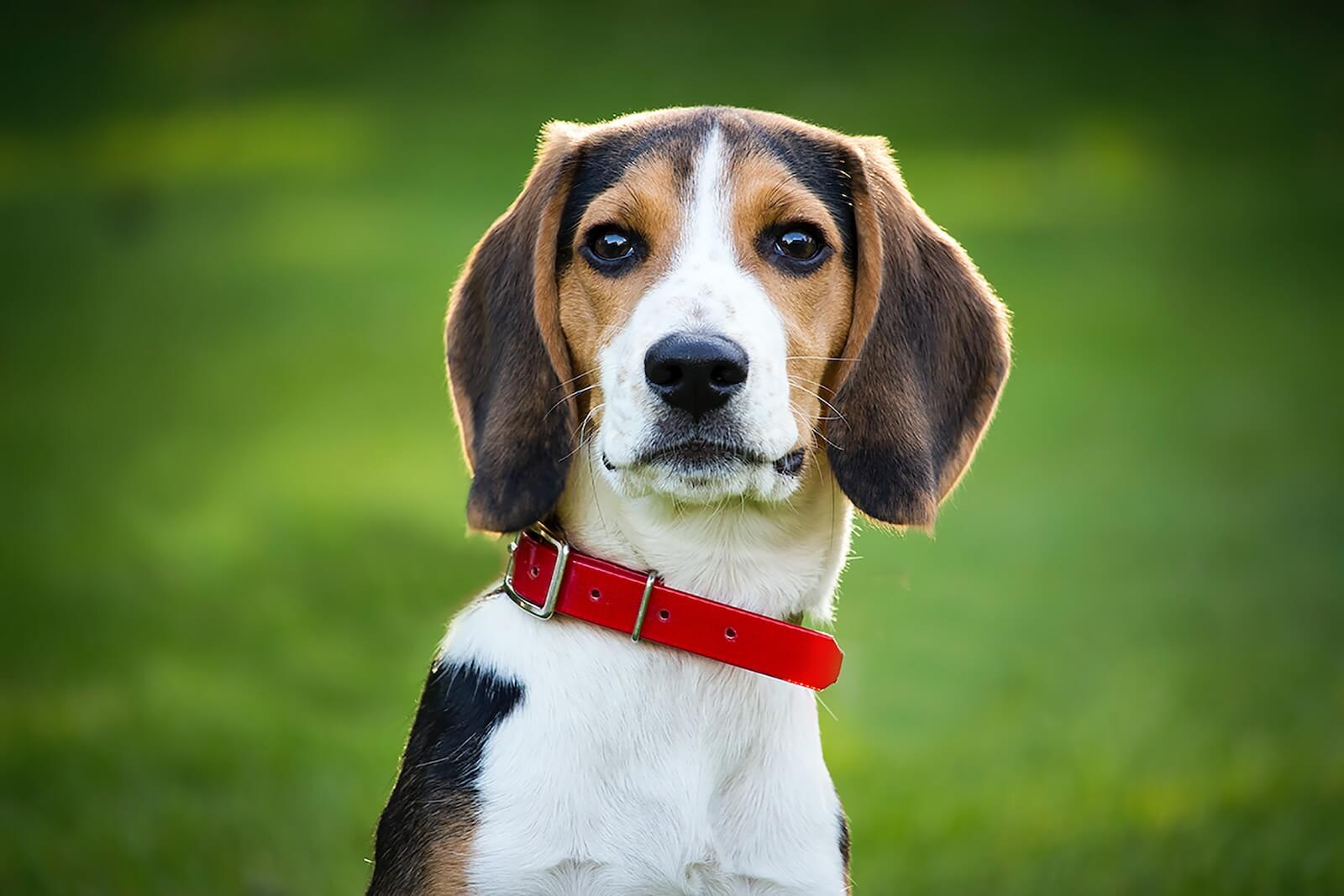
“By nature, they are calm and well-mannered, so training them for therapy purposes only enhances their natural personality,” adds Focus Care. “Lovable and friendly dogs, they can be energetic and social, but also are just as content to cuddle up and rest – making them one of the best therapy dogs for those who are immobile. Given that beagles are quite small dogs, they may be better suited to someone who lives in a smaller house or apartment.”
Purina writes, “Beagles love to be the stars in any room they find themselves in. The bigger the room and the more people, the better. For this reason, they do wonders when their support is needed by groups of people.”
4. Poodle
As one of the most agile breeds, Poodles are very athletic and easily trained. Like many dogs, they are a sociable breed and loyal to their owners, also making them some of the best support dogs.

According to U.S. Service Animals, “There are some slight variances in temperament between the three sizes, but for the most part, poodles are smart, affectionate, and good with children. Another nice thing about poodles is that they do not shed very much at all. They are considered hypoallergenic; while no dog is truly 100% hypoallergenic, poodles are one of the least likely to irritate those with allergies.”
“Poodles of any size make excellent therapy dogs,” says Hepper. “Their sweet expressions and often outlandish haircuts are sure to bring a smile and set people at ease as soon as they see them. Poodles are also among the smartest breeds and eager to please their owners, making them easy to train.”
Fetch! Pet Care adds, “These fluff balls are friendly and loving but not too excitable, so they have just the right energy for the job. Their mane of curls also makes them irresistible to pet and cuddle. The poodle’s calm nature makes them a good match for people with autism, particularly children.”
5. Cavalier King Charles Spaniel
With a mild temperament and loving personality, who doesn’t love the Cavalier King Charles Spaniel? Along with many other breeds, they are highly intelligent and obedient, placing them on this list of best therapy dogs. Betterpet says, “The ‘Cav,’ as they’re affectionately known, typically enjoys sitting on laps, even those of strangers. Working with people who use a wheelchair or cuddling at a patient’s bedside are great opportunities for this breed to shine as a therapy dog.”

“Many therapy dogs are larger breeds, but small breeds can be just as useful,” writes Pet Keen. “The Cavalier King Charles Spaniel is a great option for kids and adults alike. These dogs are easy to train, sweet, and playful, making them a good choice to provide comfort to people in hospital and care settings.”
US Service Animals adds, “Known for their sweet and playful nature, this breed loves having tasks to complete and is eager to please. They also love affection and will spend as much time with their owner as possible, making them a great choice for a playful, loving, and comforting therapy dog.”
6. Border Collie
Bred as herders, Border Collies are great with other animals, adults, and children. As one of the most active and hard-working breeds, they make great therapy dogs. “This dog breed was developed to gather and control flocks of sheep, meaning they possess almost unlimited reserves of energy, stamina and drive,” explains Newsweek. “Collies are not only intelligent and people-pleasers, they adore human company and will form enduring bonds with anyone they spend significant time with.”
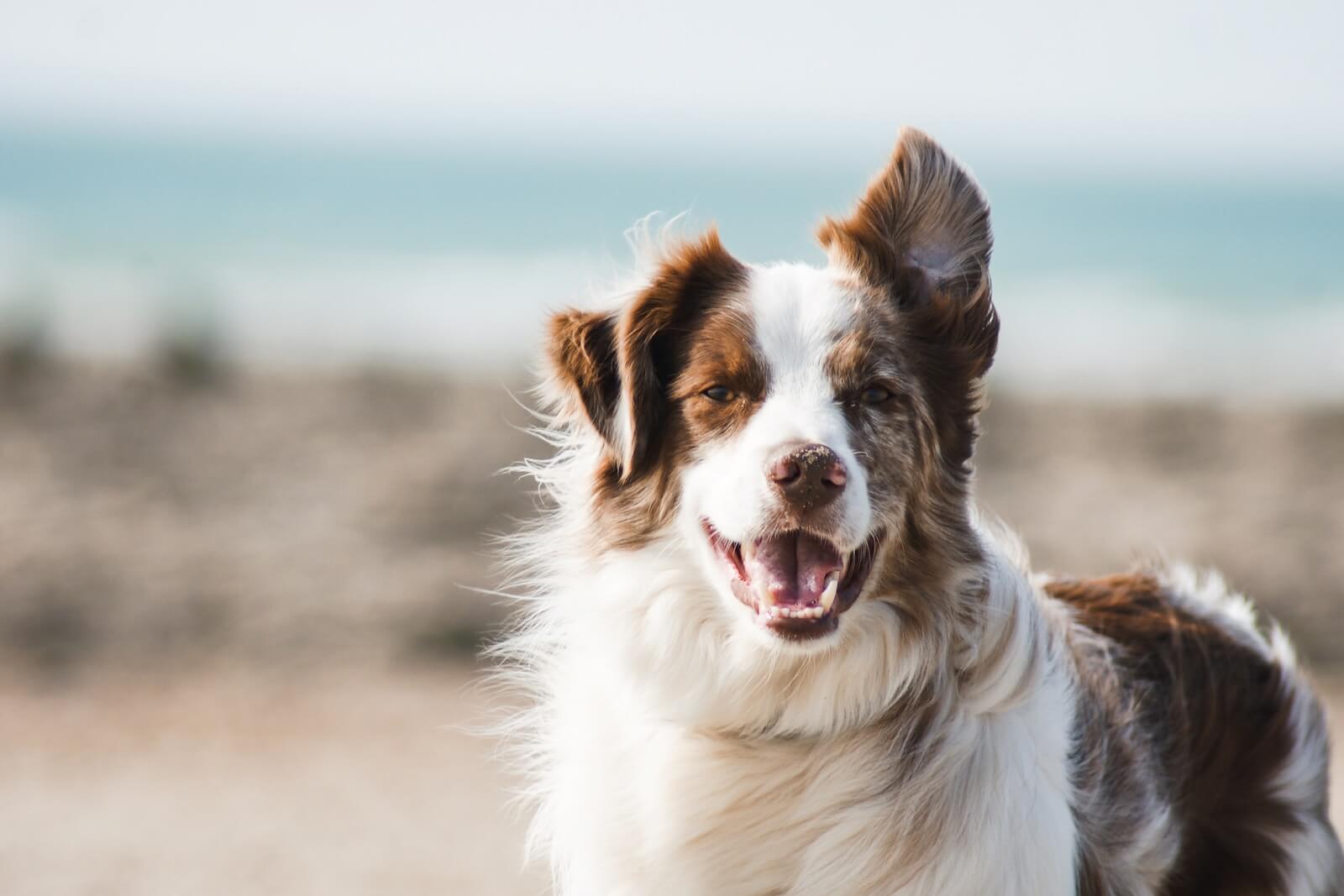
Betterpet adds, “Border collies are athletic, dynamic, playful, and highly intelligent. As a working breed, border collies are very loyal to people. It may take a while for this dog to reign in its high energy level, but once trained, border collies can be great therapy dogs.”
“Generally recognized as the smartest dog breed, Border Collies are an excellent choice to train for therapy work,” states Hepper. “They are outgoing and friendly dogs that enjoy attention. However, they have a high energy level that will need to be managed if they’re asked to serve in a quieter environment, like a senior center or hospital.”
7. German Shepherd
Best known for their service as police dogs, German Shepherds have a natural ability to guard and protect. Add that to their trainable personality and you have another perfect choice for a support companion!
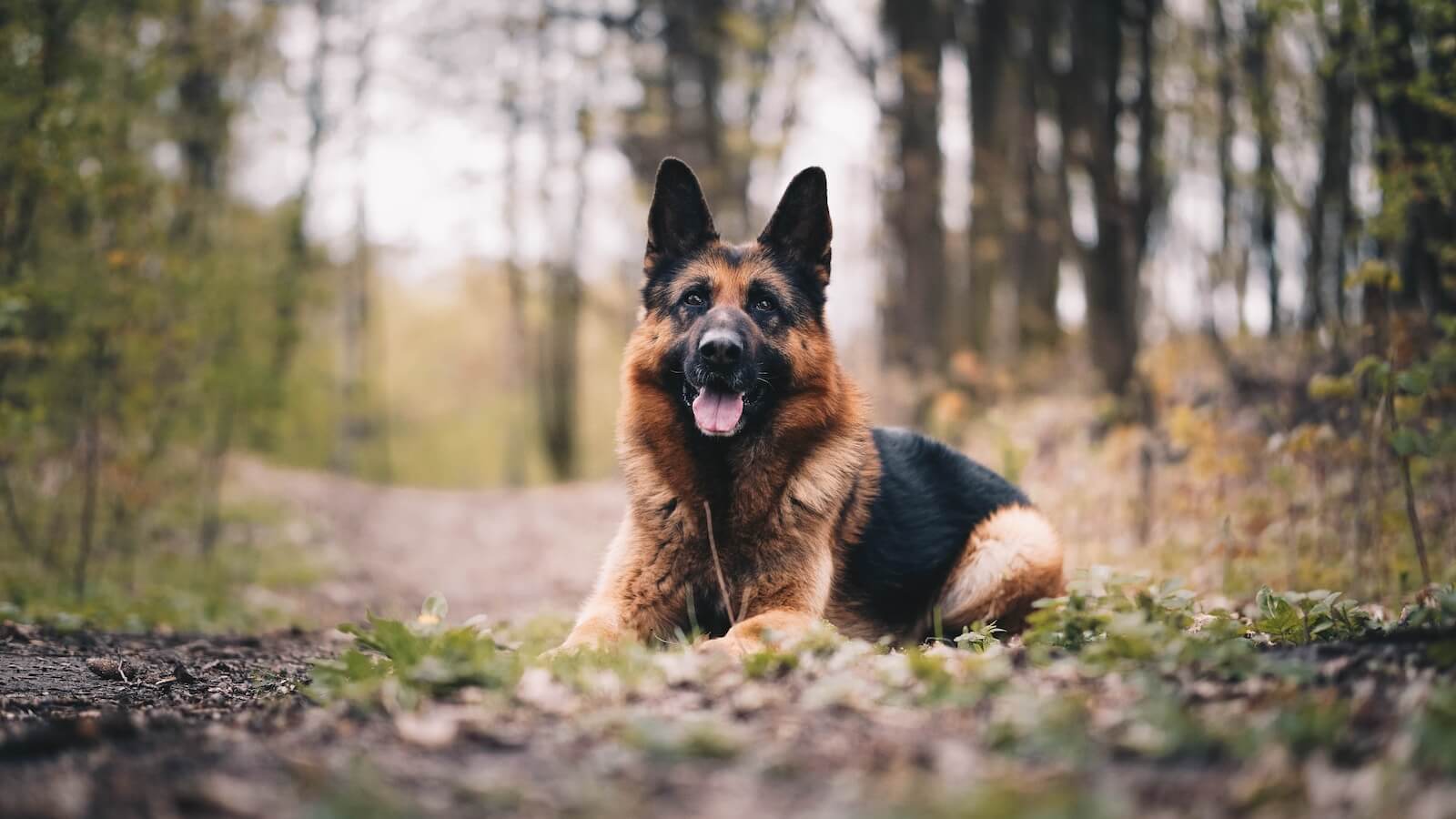
“The German Shepherd is another gorgeous big dog breed that can be trained to provide support to vulnerable people,” says Purina. “You might see them work more often as trusted partners in police departments, but they can do just as well when emotional comfort is needed. They are bright, protective and extremely aware of their environment which means they can pick up subtle changes and act quickly based on their training in guiding and listening.”
Hepper adds, “Since they’re naturally more protective than the happy-go-lucky retriever breeds, you will need to spend more time socializing a young German Shepherd that you plan to train for therapy work to help them learn to stay calm.”
“German shepherds are easily trainable as therapy dogs,” concludes betterpet. “Once they get the hang of what’s expected of them in a therapy environment, their natural obedience and loyalty make them wonderful companions to take to a variety of therapy situations and settings.”
You might also be interested in:
Sources:
Note: This article was not paid for nor sponsored. StudyFinds is not connected to nor partnered with any of the brands mentioned and receives no compensation for its recommendations. This article may contain affiliate links in which we receive a commission if you make a purchase.
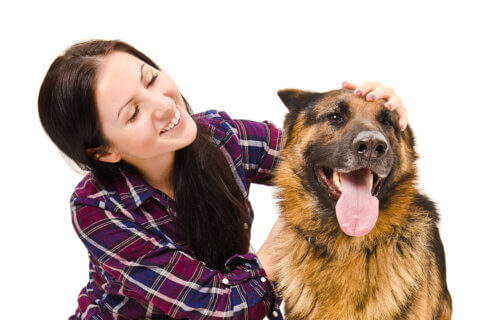
My American Staffordshire Terrier is a great service animal. They are very protective but can be easily trained. They are given a bad rap because of ignorant, uninformed people and bad owners. Bully breeds are being used as service dogs and by police agencies more and more now. We must educate people and get rid of misconceptions about bully breeds.
I recently adopted a pitbull mastiff mix two years old I wouldn’t trade him for the world we saved each other and this dog is right there any time I need him whether I realize it or not I’ve owned pit bulls Rottweilers German Shepherds and they all make amazing Pets any dog does but pit bulls are just the most amazing
My Australian labradoodle is a service, therapy and canine good citizen. He is a person in a fog suit.
My Maltese Cross shitzu is unusual he has human like eyes and he knows what and when I need to do things but for some unknown reason He can not be my assistant carer dog under the rules and policies but in my home he is I’m going to die he knows that but pushers me to bake cook again after everything…….. merry Christmas 🎄